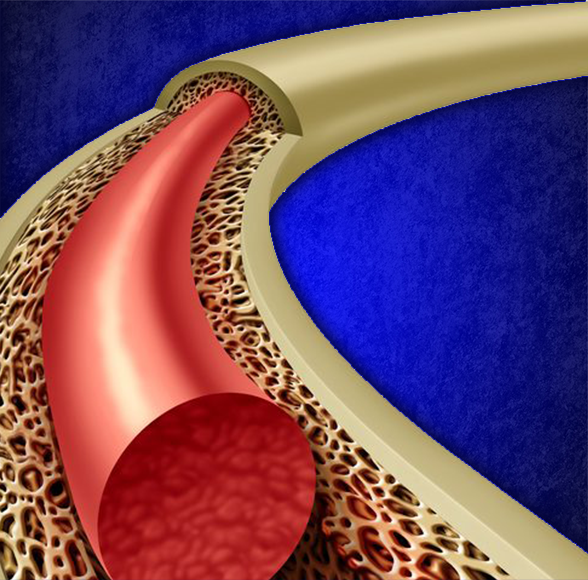OUR MISSION | TO PROVIDE AFFORDABLE, RELIABLE, BEST QUALITY INTERNATIONAL MEDICAL TOURISM.

LET US CONNECT YOU WITH HEALTH CARE
Bone Marrow Transplant
A bone marrow transplant is a medical procedure performed to replace bone marrow that has been damaged or destroyed by disease, infection, or chemotherapy. This procedure involves transplanting blood stem cells, which travel to the bone marrow where they produce new blood cells and promote growth of new marrow.
Bone marrow is the spongy, fatty tissue inside your bones. It creates the following parts of the blood:
- red blood cells, which carry oxygen and nutrients throughout the body
- white blood cells, which fight infection
- platelets, which are responsible for the formation of clots
Bone marrow also contains immature blood-forming stem cells known as hematopoietic stem cells, or HSCs. Most cells are already differentiated and can only make copies of themselves. However, these stem cells are unspecialized, meaning they have the potential to multiply through cell division and either remain stem cells or differentiate and mature into many different kinds of blood cells. The HSC found in the bone marrow will make new blood cells throughout your lifespan.
A bone marrow transplant replaces your damaged stem cells with healthy cells. This helps your body make enough white blood cells, platelets, or red blood cells to avoid infections, bleeding disorders, or anemia.
Healthy stem cells can come from a donor, or they can come from your own body. In such cases, stem cells can be harvested, or grown, before you start chemotherapy or radiation treatment. Those healthy cells are then stored and used in transplantation.
Bone marrow transplants are performed when a person’s marrow isn’t healthy enough to function properly. This could be due to chronic infections, disease, or cancer treatments. Some reasons for a bone marrow transplant include:
- aplastic anemia, which is a disorder in which the marrow stops making new blood cells
- cancers that affect the marrow, such as leukemia, lymphoma, and multiple myeloma
- damaged bone marrow due to chemotherapy
- congenital neutropenia, which is an inherited disorder that causes recurring infections
- sickle cell anemia, which is an inherited blood disorder that causes misshapen red blood cells
- thalassemia, which is an inherited blood disorder where the body makes an abnormal form of hemoglobin, an integral part of red blood cells
A bone marrow transplant is considered a major medical procedure and increases your risk of experiencing:
- a drop in blood pressure
- a headache
- nausea
- pain
- shortness of breath
- chills
- a fever
The above symptoms are typically short-lived, but a bone marrow transplant can cause complications. Your chances of developing these complications depend on several factors, including:
- your age
- your overall health
- the disease you’re being treated for
- the type of transplant you’ve received
Complications can be mild or very serious, and they can include:
- graft-versus-host disease (GVHD), which is a condition in which donor cells attack your body
- graft failure, which occurs when transplanted cells don’t begin producing new cells as planned
- bleeding in the lungs, brain, and other parts of the body
- cataracts, which is characterized by clouding in the lens of the eye
- damage to vital organs
- early menopause
- anemia, which occurs when the body doesn’t produce enough red blood cells
- infections
- nausea, diarrhea, or vomiting
- mucositis, which is a condition that causes inflammation and soreness in the mouth, throat, and stomach
Talk to your doctor about any concerns you may have. They can help you weigh the risks and complications against the potential benefits of this procedure.
There are two major types of bone marrow transplants. The type used will depend on the reason you need a transplant.
Autologous Transplants
Autologous transplants involve the use of a person’s own stem cells. They typically involve harvesting your cells before beginning a damaging therapy to cells like chemotherapy or radiation. After the treatment is done, your own cells are returned to your body.
This type of transplant isn’t always available. It can only be used if you have a healthy bone marrow. However, it reduces the risk of some serious complications, including GVHD.
Allogeneic Transplants
Allogeneic transplants involve the use of cells from a donor. The donor must be a close genetic match. Often, a compatible relative is the best choice, but genetic matches can also be found from a donor registry.
Allogeneic transplants are necessary if you have a condition that has damaged your bone marrow cells. However, they have a higher risk of certain complications, such as GVHD. You’ll also probably need to be put onmedications to suppress your immune system so that your body doesn’t attack the new cells. This can leave you susceptible to illness.
The success of an allogeneic transplant depends on how closely the donor cells match your own.
Prior to your transplant, you’ll undergo several tests to discover what type of bone marrow cells you need.
You may also undergo radiation or chemotherapy to kill off all cancer cells or marrow cells before you get the new stem cells.
Bone marrow transplants take up to a week. Therefore, you must make arrangements before your first transplant session. These can include:
- housing near the hospital for your loved ones
- insurance coverage, payment of bills, and other financial concerns
- care of children or pets
- taking medical leave from work
- packing clothes and other necessities
- arranging travel to and from the hospital
During treatments, your immune system will be compromised, affecting its ability to fight infections. Therefore, you’ll stay in a special section of the hospital that’s reserved for people receiving bone marrow transplants. This reduces your risk of being exposed to anything that could cause an infection.
Don’t hesitate to bring a list of questions to ask your doctor. You can write down the answers or bring a friend to listen and take notes. It’s important that you feel comfortable and confident before the procedure and that all of your questions are answered thoroughly.
Some hospitals have counselors available to talk with patients. The transplant process can be emotionally taxing. Talking to a professional can help you through this process.
When your doctor thinks you’re ready, you’ll have the transplant. The procedure is similar to a blood transfusion.
If you’re having an allogeneic transplant, bone marrow cells will be harvested from your donor a day or two before your procedure. If your own cells are being used, they’ll be retrieved from the stem cell bank.
Cells are collected in two ways.
During a bone marrow harvest, cells are collected from both hipbones through a needle. You’re under anesthesia for this procedure, meaning you’ll be asleep and free of any pain.
Leukapheresis
During leukapheresis, a donor is given five shots to help the stem cells move from the bone marrow and into the bloodstream. Blood is then drawn through an intravenous (IV) line, and a machine separates out the white blood cells that contain stem cells.
A needle called a central venous catheter, or a port, will be installed on the upper right portion of your chest. This allows the fluid containing the new stem cells to flow directly into your heart. The stem cells then disperse throughout your body. They flow through your blood and into the bone marrow. They’ll become established there and begin to grow.
The port is left in place because the bone marrow transplant is done over several sessions for a few days. Multiple sessions give the new stem cells the best chance to integrate themselves into your body. That process is known as engraftment.
Through this port, you’ll also receive blood transfusions, liquids, and possibly nutrients. You may need medications to fight off infections and help the new marrow grow. This depends on how well you handle the treatments.
During this time, you’ll be closely monitored for any complications.
The success of a bone marrow transplant is primarily dependent on how closely the donor and recipient genetically match. Sometimes, it can be very difficult to find a good match among unrelated donors.
The state of your engraftment will be regularly monitored. It’s generally complete between 10 and 28 days after the initial transplant. The first sign of engraftment is a rising white blood cell count. This shows that the transplant is starting to make new blood cells.
Typical recovery time for a bone marrow transplant is about three months. However, it may take up to a year for you to recover fully. Recovery depends on numerous factors, including:
- the condition being treated
- chemotherapy
- radiation
- donor match
- where the transplant is performed
There’s a possibility that some of the symptoms you experience after the transplant will remain with you for the rest of your life.

 +393334490384
+393334490384 BestMedicalSurgery
BestMedicalSurgery
 Telegram
Telegram







 +442033184026
+442033184026 +19299992153
+19299992153 +37495992288
+37495992288 +380947116766
+380947116766 +6531593709
+6531593709 +48226022326
+48226022326 +48226022326
+48226022326 +556140426941
+556140426941
